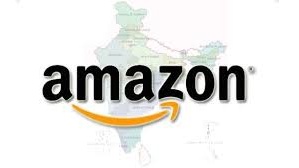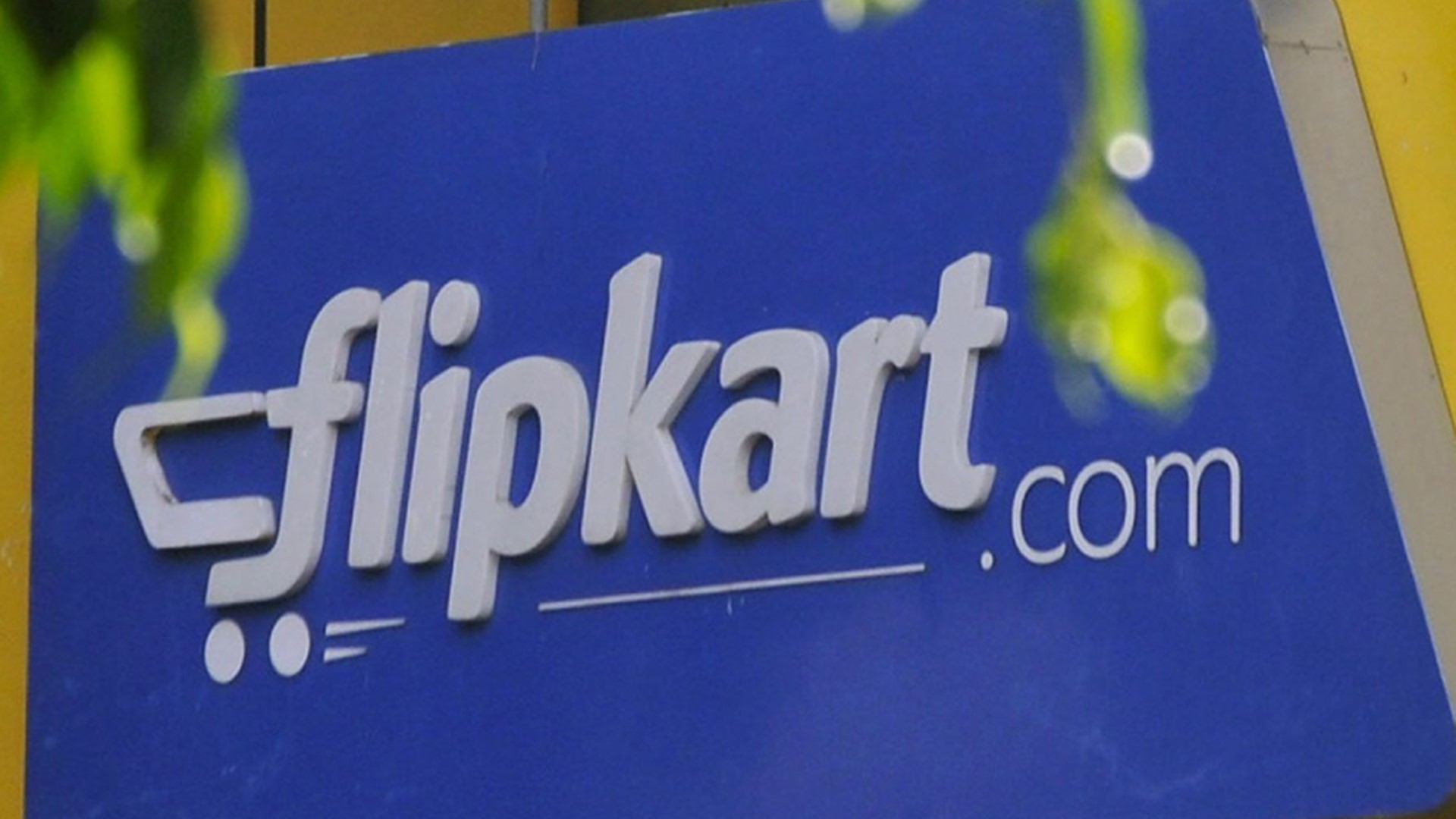Year in Review: 2020, a curate’s egg for e-commerce platforms in India
Reliance Retail wins on investment stakes

Sign up for breaking news, reviews, opinion, top tech deals, and more.
You are now subscribed
Your newsletter sign-up was successful
To write the year-end round-up on the Indian e-commerce industry, which was under relentless spotlight because people became more dependent on it as regular shops shuttered down due to social-distancing restrictions, is a daunting task.
For, the Indian e-commerce space --- projected to grow to a $1.3 trillion market by 2025 --- has become amorphous because the line between and online and brick-and-mortar shops are highly blurred.
Allow us to explain further: It is said that during the huge discount sale of smartphones by Flipkart and Amazon the biggest customers are physical stores across the country. At least 40% of the sale is said to be driven by them. They reportedly buy smartphones in bulk at discount rates and sell them at their MRPs later.
On the other hand, Amazon, Flipkart and Jio Mart have all worked out alliances with different sets to kirana shops and other outlets across the country and use their inventory and location to drive their online business. This works across products. From groceries to fashion goods to consumer durables to electronic items, there is some kind of symbiotic relationship between the two entities, who, ironically, also see the other as a rival.
As it happens, 2020 may go down as the year where online and offline business started to slowly merge. If not that, each one is at least complementing the other.
Of course, 2020 will also be remembered for the fact that three big, deep-pocketed entities --- Amazon, Flipkart and Reliance Retail --- moved in for the kill in the Indian market with massive investments. And we also hear that Tatas, one of the biggest and credible names in Indian corporate arena --- is reportedly planning to move in with the takeover of BigBasket.
- Indian eCommerce players gear up to face anti-China ban
- Big cities no more driving India's eCommerce growth
- Your local kirana store can now be listed on Amazon India
- Reliance Jio Mart launched - how will it impact India's e-commerce?
Reliance Retail shops successfully for big-ticket investments
The screaming headlines of the year, of course, belonged to Reliance Retail. Reliance Group’s digital entity Jio Platforms started the ball rolling and made a huge killing in terms of investments --- $20.6 billion (Rs 1.52,056 crore) --- including from Facebook and Google. But the retail venture of the group, the eponymous Reliance Retail was no slouch either.
Sign up for breaking news, reviews, opinion, top tech deals, and more.
In a span of two months, Reliance Retail got Rs 47,265 crore in investments. Reliance Retail raised these staggering crores from leading global investors including two tranches from Silver Lake (1 and 2), KKR, General Atlantic, Mubadala, GIC, TPG, ADIA and PIF.
Even as Reliance Retail consolidated its business on the investment side, its biggest move in the market came with the launch of Jio Mart in May this year.
The e-commerce offspring of the marriage between Jio Platforms and Reliance's retail chain Jio Retail - Jio Mart - expanded its services to 200 cities and towns, including the Metros of Delhi, Mumbai, Chennai, Kolkata and Bengaluru, across India.
Jio Mart has already reached out to thousands of mom and pop stores across the country. It hopes to exploit the wide reach of these stores to connect with more consumers. Jio Mart has smartly worked out a deal with these stores by which it will help them with automation at the backend and scale up the business. The idea of onboarding kirana shops is that it is easy to access more consumers at no extra cost.
Jio Mart is also leaning on Reliance Retail’s 12,000 brick-and-mortar stores in over 6,600 cities with access to cold storage and warehousing facilities.
Reliance Retail taps into WhatsApp’s reach

In 2020, Reliance Retail became India’s largest retail operator, roughly 7 times the size of its nearest rival — Avenue Supermarts that owns D’Mart.
WhatsApp is the crucial link for Jio Mart. It is likely to power the (business-to-consumer) payments offering, with a logistics network or the kirana store ensuring delivery.
And this is where Jio Platforms' tie-up with Facebook, which owns WhatsApp, is expected to play a pivotal role. Right off the bat, JioMart has the ready user base of India’s 400 million WhatsApp users. Jio Mart will also dip into the services of Facebook Messenger and Facebook app itself to integrate shopping features and reach a broader user base.
But essentially, Jio will leverage WhatsApp for Business to its retailers, with an end-to-end service, unlike now, where they have to go to other third-party companies.
And on cue, WhatsApp got the approval to rollout its much talked of WhatsApp Pay.
But the permission has come with a rider. NPCI (National Payments Corporation of India) has told WhatsApp that it can expand payments to its users in a “graded manner”.
As per NPCI, WhatsApp can extend the payments service to 20 million users and has to work with multiple banking partners.
In 2020, Reliance Retail became India’s largest retail operator, roughly 7 times the size of its nearest rival — Avenue Supermarts that owns D’Mart.
Ambanis take on Amazon in a no-holds-barred fight
Still, the biggest news that Reliance Retail triggered was over the messy legal wrangle with Amazon over the buyout of Future Group’s retail business.
The case has become a convoluted one with the Delhi High Court refusing to restrain Amazon from writing to statutory authorities, rejecting Future Group's plea to prohibit the American giant from interfering in its deal with Reliance Retail. However, the statutory authorities are free to take their own decision as per law. The high court, however, termed Future Retail's resolution approving the transaction with Reliance Retail also valid.
The high court order has given leverage to Future Retail and Reliance Retail.
The Indian arm of Jeff Bezos' company had earlier fired a legal salvo at Kishore Biyani's Future Group, which had struck a deal with Reliance Retail. Amazon had said Future-Reliance tie-up cannot go ahead without Amazon’s approval in view of the non-compete clause entered earlier with the retail group.
Earlier in August, Reliance Retail acquired the retail and wholesale business and the logistics and warehousing business from the Kishore Biyani-promoted Future Group for Rs 24,713 crore.
Prior to the Future Group deal, Reliance Retail also acquired a majority stake in online pharmacy Netmeds for a cash consideration of Rs 620 crore.
Reliance Retail also acquired furniture retailer Urban Ladder — once a darling of VCs — for Rs 182 crore in a fire sale.
Amazon making its own big moves

Amazon announced the expansion of its ‘Amazon Pantry’ to over 300 new cities in India.
Even as Amazon is fighting with Reliance Retail, its own operations in India are getting expanded.
Even as Reliance Retail and Flipkart got a fresh infusion of funds, Amazon invested Rs 700 crore ($95.51 million) in its Indian payments unit.
The new round of funding is Amazon’s second investment into Amazon Pay this year, after the company pumped in Rs 1,355 crore in January.
Amazon Pay had earlier increased its authorised share capital to Rs 16,000 crore from Rs 6,000 crore. It clearly shows that the company is seriously mounting a charge on its rivals like Google Pay, PhonePe and Paytm, who also made headlines with their own expansion plans.
Amazon did not stop with that. In another salvo at Jio Mart, Amazon announced the expansion of its ‘Amazon Pantry’ to over 300 new cities in India. This meant its grocery delivery service would now be available in a staggering 10,000 pin codes across the country.
Further, even while Zomato and Swiggy, the two main players in food delivery segment found the going tough, Amazon recently announced the official launch of its food delivery business from Bengaluru.
Amazon Food had also forayed into alcohol delivery service from West Bengal.
Amazon reiterated the growing influence of customers in smaller Indian towns and cities on the growth of eCommerce by embracing more local languages in addition to Hindi, for which it had added support two years ago. Amazon now allows users to shop on its website and via the app in Kannada, Malayalam, Tamil and Telugu.
Amazon India also launched its online prescription medicine delivery service 'Amazon Pharmacy' in Bengaluru. The Amazon Pharmacy service offers prescription, over-the-counter and traditional Ayurveda medication as well as basic health devices.
Just as education and entertainment moved online in the lockdown period, people have also gravitated towards online consultation, medical tests and medicine delivery. There had been a big spike in telemedicine.
E-pharmacy market set to explode

Over 70 per cent of users are willing to use e-pharmacy post-Covid-19 due to the positive experience
Not to be outdone, the other big player in Indian e-commerce scene, the Walmart-backed Flipkart also got into the e-pharmacy space.
Flipkart is now in a deal with the e-pharma company 1MG and the latter's app is now inside Flipkart's Android app. Flipkart users can now order medicines, book doctor consultations and lab tests, thanks to 1MG which already offers these services.
An industry report indicates that around 60-70 percent of medicines order volumes across most e-pharma platforms are from chronic patients.
As per a FICCI report, pre-Covid 3.5 Millon households were using e- pharmacy. During Covid-19, the number of households increased to 9 Million. But the fact is that overall, the pharmacy market in India remains highly unorganized with only a handful of large retail pharmacies across smaller towns and cities. That is why it has been reported that in 2019, virtually 99 per cent of the medicine sales were 'off-line'. That is why the scope of growth and expansion of online pharmacy is extremely promising.
According to a RedSeer survey, over 70 per cent of users are willing to use e-pharmacy post-Covid-19 due to the positive experience coupled with stronger adoption among low-income households.
Flipkart was no slouch either
Flipkart got its biggest vote of confidence with its parent Walmart putting in big dollars in it again.
Walmart, which acquired a majority stake (77%) in Flipkart for $16 billion two years ago, again led a new $1.2 billion financing round. Flipkart’s valuation has risen almost 20% since Walmart's original investment.
But it was not just Walmart, but another big-name investor Tencent also put in $ 62.8 million in it. This was another morale booster for the Indian e-commerce biggie. Tencent is the second-biggest shareholder in the e-commerce marketplace. Its stake has now increased from 5% to 5.34%.
The Walmart-owned Indian e-commerce biggie also came up with a slew of measures to face up to the challenge thrown up by JioMart, Amazon, BigBasket, and the new entrant Swiggy. And as a part of it, Flipkart rolled out 'dark stores', which are essentially shops or outlets operated to service customers in nearby localities, across several cities in India. These dark stores are quintessentially warehouses.

In terms of acquisitions and expansion, Flipkart was not behind the biggies.
Flipkart also unveiled its plans in the wholesale market with the unveiling of its exclusive B2B marketplace – Flipkart Wholesale.
This, the company said, will enable the kirana shops and MSMEs to procure goods in categories including grocery, general merchandise, or fashion. Flipkart is also offering them special schemes, easy credit options and incentives.
Along with the launch, Flipkart also acquired the wholesale business of its parent company Walmart in India.
This reverse acquisition of the business-to-business segment of Walmart in India will help Flipkart to expand its footprint in the food and grocery segment and strengthen its supply chain.
Flipkart also launched a hyperlocal 90-minute delivery service called Flipkart Quick. In the first phase, it was launched in Bengaluru. And it will deliver across categories including grocery, mobiles, electronics and home accessories.
Flipkart Quick aims to provide consumers with a handpicked assortment of more than 2,000 products in categories varying from grocery, fresh, dairy, meat, mobiles, electronics accessories, stationery items and home accessories in the first phase. This also marks Flipkart’s foray into servicing fresh fruits, vegetables, meats, and milk orders.
In terms of acquisitions and expansion, Flipkart was not behind the biggies. It took over Augmented Reality company Scapic with a view to accelerating the company’s efforts to provide deeper camera experiences, virtual storefronts and new opportunities for brand advertising on its platform.
Flipkart also acquired social gaming startup Mech Mocha and logistic company Ninjacart.
Both Flipkart and Amazon enjoyed record festival sales --- a bright spot in an otherwise tough year for the industry.
Not total smooth sailing
Talking of hardships, Amazon and Flipkart also ran into trouble for not displaying the mandatory declarations. According to rules, e-commerce platforms must make declarations on the country of origin.
Amazon also found the going tough as some of the rules, it felt, were tailored against it as it was a foreign company.
Other online grocers like Swiggy had a rough year as they could not sustain their business. Zomato pulled out of the e-grocery race.
Further, online platforms continued to face the umbrage of local traders and businessmen.
Also, in the fight between Amazon and Reliance over Future Group, the local business community seems to be siding with the latter. After the high court verdict on the matter, trader’s body CAIT has said Amazon’s “manipulative, coercive, arbitrary and dictatorial policies” to dominate India’s retail trade should come to an end
The e-commerce story in India cannot be complete without mentioning the new development where electronic brands, especially smartphones and laptops, are themselves finding their own online platforms are turning out good business.
This year many brands saw their own online stores outdoing their offline stores. This may be the order of the day in the future.
- TechRadar India Awards 2020: The Winners

Over three decades as a journalist covering current affairs, politics, sports and now technology. Former Editor of News Today, writer of humour columns across publications and a hardcore cricket and cinema enthusiast. He writes about technology trends and suggest movies and shows to watch on OTT platforms.